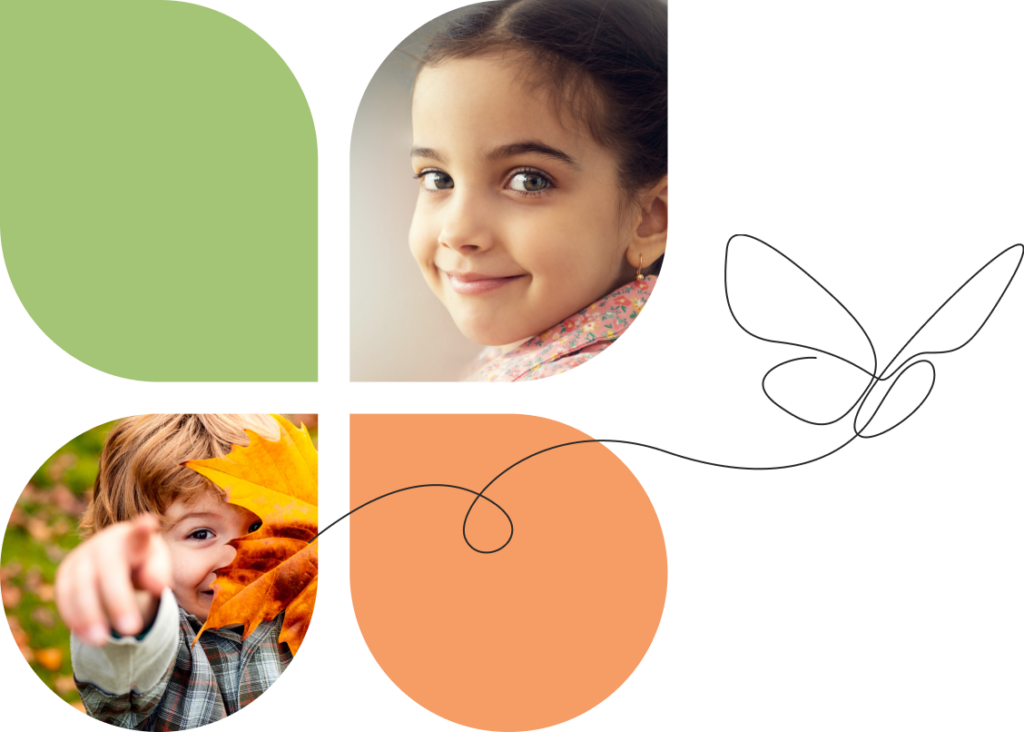As adults, we often move from task to task without much thought. We shift our focus, change our pace, and expect children to do the same. But for young children, even small changes in rhythm can feel overwhelming. Every transition asks them to let go of something familiar and adjust to something new.
In our recent LiveTalk with Montessori educators Regina Lulka and Blanca Sanchez, we explored why transitions can be so difficult for children, and what we can do to support them emotionally and practically through these moments. Here are some of the key ideas we explored together.
This session is part of our ongoing series inside the Childhood Potential Club, where members gain access to expert talks, community support, and resources designed for real life with young children.
There Is More Going On Than Meets The Eye
When a child melts down after school, resists getting dressed in the morning, or struggles to leave the park, we often focus on the behavior we see. But what’s underneath is usually something deeper. Transitions can be emotionally intense. Children may feel overwhelmed, overstimulated, unsure of what is coming next, or simply not ready to stop what they are doing.
Understanding that these behaviors are often communication, not defiance, helps us approach the moment with more empathy and less frustration.
Consistency Builds Security
Children thrive when life feels predictable. Having clear, consistent routines helps them know what to expect and prepares them to move from one part of the day to the next. Whether it is getting ready in the morning or winding down before bed, these daily rhythms provide structure and comfort.
Over time, familiar routines also support independence. When children know what comes next, they can begin to take more responsibility for those steps.
Transitions Take Time
Young children need time to process change. It may take them a few extra moments to shift gears after receiving a direction. Giving them space to make that transition, without rushing or pressuring, can make a big difference.
It is not about letting go of limits or expectations. It is about offering children the time they need to move forward with confidence and dignity.
Offering Choice Helps Reduce Power Struggles
Involving children in small decisions can ease tension during transitions. Choosing between two shirts or selecting which part of a routine to start with helps children feel more in control.
This sense of autonomy supports cooperation and builds decision-making skills, both of which help transitions feel less like something being done to the child and more like something they are participating in.
Bigger Transitions Need Gentle Preparation
When a child is facing a significant life change, like a new baby in the family, a move, or starting school, they need extra time and support. Helping them understand what to expect, involving them in small preparations, and maintaining familiar routines where possible can all provide a sense of stability.
It is not about eliminating the difficulty of change but giving the child the tools to face it with more confidence.
Explore the fundamentals of Montessori parenting with this free video by Sylvia Arotin, offering insights and strategies to empower and educate your child.
Children Learn by Watching Us
Transitions can be stressful for adults too. When we are able to model calm, flexible behavior, even when things do not go smoothly, we show children how to navigate challenges with resilience.
This does not require perfection. It simply means being mindful of our own reactions and remembering that children are always watching and learning from us.
Supporting Growth Through Change
Transitions are a natural part of life. When we take the time to support our children with clear communication, consistent routines, and emotional empathy, we help them build the inner tools they need to manage change, now and in the future.
With thoughtful guidance, even the hardest transitions can become meaningful moments of connection, learning, and growth.
Meet Our Guest Speakers
Regina Lulka and Blanca Sanchez are longtime Montessori educators with decades of combined experience in the classroom and in parent education. Known for their deep understanding of child development and practical, heart-centered guidance, they bring a thoughtful and compassionate approach to some of the most challenging moments in parenting. Their insight helps families navigate transitions with clarity, connection, and confidence.






